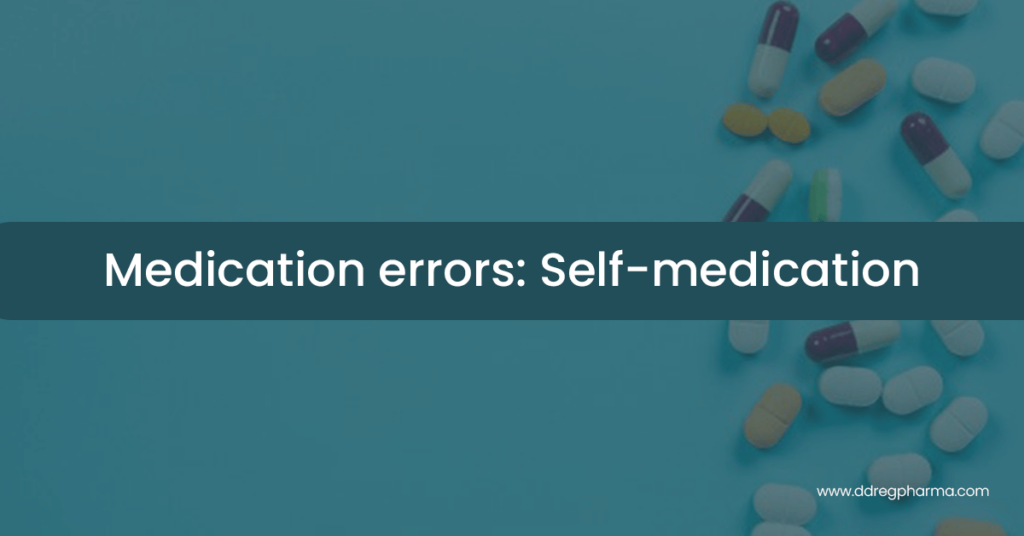Florence Nightingale once said “The very first requirement in a hospital is that it should do the sick no harm” 1 This notion has been evolving ever since to provide utmost patient safety in the healthcare processes. Studies have emphasized that medication errors are one of the principal causes of adverse events in patients constituting a relevant health problem, where the majority can be prevented. Indeed, medication errors are one of the crucial remediable portions of the safety continuum.2
The FDA defines a medication error as “any preventable event that may cause or lead to inappropriate medication use or patient harm while the medication is in the control of the healthcare professional, patient, or consumer”3. Medication error has been defined by Ferner and Aronson as “a failure in the treatment process that leads to, or has the potential to lead to, harm to the patient.” Failure connotates that the errors can be prevented by implementing certain standards to assess and correct them. Medication errors can occur due to a variety of reasons such as prescribing errors, formulation manufacturing and/or dispensing errors, administration or consumption of medicine errors, or failure to therapy errors. Medication errors can result in a huge spectrum of effects ranging from injury, serious adverse reactions, and even death in some cases, although most of these errors have been found to cause minor reactions.
Medication errors are underestimated in terms of their incidence and impact and therefore pose a serious risk to patient safety. Thus, various studies are being conducted to investigate the causes and effects of these errors. According to a recent study by Barker, errors occur in up to 20% of all medication-related processes with 43% of errors occurring due to the drug being administered at the wrong time, followed by 30% due to non-administration of prescribed medication, and 17% due to wrong dose administration. These errors can not only be made by healthcare professionals but can also be by the patients self-administering the drug, thus contributing to an overall 7% of all medication errors having the potential to cause adverse drug reactions.4
There is a general thought that only healthcare professionals are responsible for medication errors such as lack of work experience, and communication among healthcare professionals. In addition, there has been a variation between the patient’s prescription records by the physician and the patient’s medications. This could be attributed to the lack of communication or misunderstanding of the language among the healthcare workers. On the other hand, studies have shown that patients transferred from hospital settings to the home-based have often shown the occurrence of the medication error. Also, in many instances, it is the patients or their caregivers who are responsible for the medication error resulting in the adverse event. Thus, the general thought that only healthcare professionals are responsible for the medication error is not fully correct. Moreover, a wide range of research is done on the medication errors committed by healthcare professionals than those made by the patients.
Self-medication involves patients taking medicinal products to treat their condition without consulting a medical professional. For example, there can be situations where the patient is consuming medication which is not prescribed by the physician or the patient is non-adherent to the prescribed dose, or schedule, and/or stops taking the medication before the stipulated time prescribed by the clinician. Also, a substantial portion of non-adherence is reported due to forgetting to take the medication. In addition, patients have reported being confused with other medications due to the resemblance in the appearance, similar spellings, and incorrect storage affecting the therapeutic efficacy of the medicines. Further to this, patients using medical devices inappropriately have also resulted in medication errors. To quote an example, incorrect use of devices such as inhalers, dosing cups, glucometers, and dosing spoons can lead to or have the potential to cause medication errors, posing a risk to patient safety.5
As the old saying goes “prevention is better than cure”, the same implies to the case of patient safety. Medication errors pose a major health hazard to the public which can be prevented. It is evident that doctors are not the sole ones responsible for making these errors, but patients too make errors, especially those taking more than five different types of medication per day or who are dependent on a caregiver. Any type of medication error should not be underestimated because they hold the potential to cause harm to patients, lead to loss of therapeutic effect of the medicines and an avoidable increase in health care costs. Therefore, the role of both healthcare professionals as well as patients is very important in the safe use of medications. Although most physicians and other healthcare workers have knowledge of medication errors, identifying them in time the patients’ information needs and/or the help they might require to avoid such errors in the future is crucial to prevent them from happening. Nonetheless, patients themselves must be involved in their own safety rather than solely relying on the health system.
-Dr. Mayuri Dhoble, Medical Writer at DDReg
References :
-
- Clancy C.M, Farquhar M.B, Sharp B.A.C. 2005. Patient safety in nursing practice. Journal of nursing care quality, 20(3), pp. 193-197.
-
- Berland A, Bentsen S.B. 2017. Medication errors in home care: a qualitative focus group study. Journal of clinical nursing 26(21–22),pp.3734–3741.
-
- Aronson J.K. 2009. Medication errors: what they are, how they happen, and how to avoid them. QJM: An International Journal of Medicine, 102(8), pp.513–521.
-
- Mira J.J, Lorenzo S, Guilabert M, Navarro I, Pérez-Jover V. 2015. A systematic review of patient medication error on self-administering medication at home. Expert Opinion on drug safety14(6), pp. 815–838.

